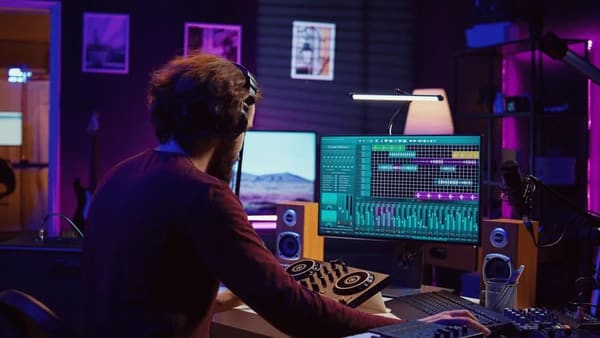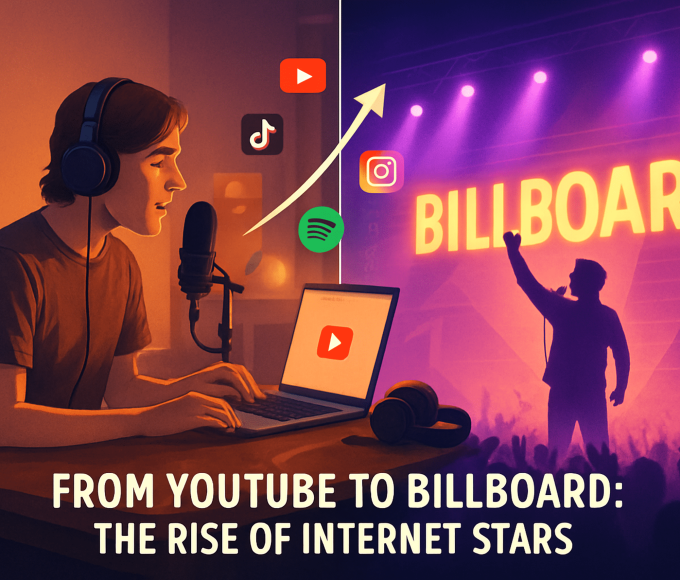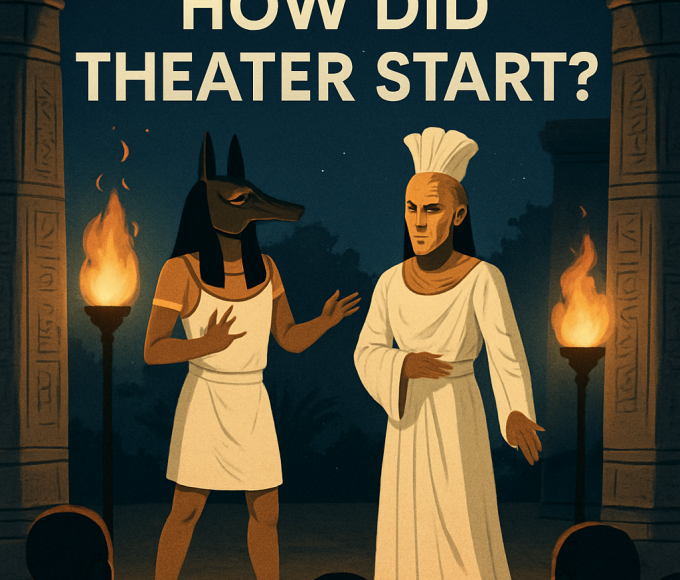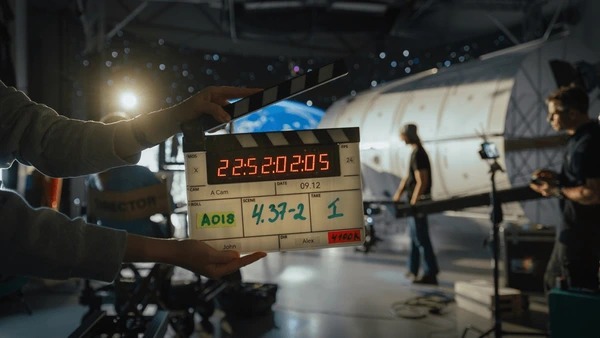Many artists ask this before booking their first studio date: what does a music producer do? A producer turns scattered ideas into a professional and honest song. Because the job mixes art, technology, and leadership, understanding it saves time and money.
Moreover, solid knowledge helps you pick partners who lift your music rather than drain your budget. This guide will teach you every core task, supported by fresh industry data. As a result, you can spot real value and avoid hype. Keep reading; the payoff for your next release starts now.
What Does A Music Producer Do? – The Producer as Creative Architect
A modern producer shapes the sound, manages people, and drives deadlines. Consequently, they become the central mind of any recording project. IFPI’s 2025 Market Report notes that 82 % of chart hits credit a dedicated producer, underlining their impact.
- Vision Setting – The producer defines style, tempo, and mood first. Thus, the project gains a clear artistic compass.
- Session Leadership – They hire players, book studios, and guide performances. As a result, creativity flows without chaos.
- Technical Judgment – Producers choose microphones, preamps, and plug-ins. Therefore, raw tracks emerge crisp and lively.
- Arrangement Crafting – They mold song structure, trimming filler and boosting hooks so listeners stay engaged.
- Energy Management – They read emotions in the room, encouraging bold takes and honest vocals.
- Budget Control – Finally, they track costs, ensuring artistry never crashes into red ink.
Because a producer balances these roles, artists focus on feeling, not logistics. Moreover, labels rely on producers to hit release dates. This dual trust explains why seasoned producers command premium rates. What does a music producer do? They translate dreams into masters that stream flawlessly worldwide.
Stat Box: Deloitte’s 2024 Streaming Study shows songs guided by producers achieve 35 % longer average listen times than self-produced tracks.
Yet, the role keeps evolving. Remote sessions, AI stems, and immersive audio push producers to learn daily. Therefore, flexibility now sits beside talent as a top hiring factor. When scouting partners, ask for stories showing both traits. In turn, you secure a creative architect who delivers music that feels timeless and sounds current.
Key Responsibilities In Detail
Understanding tasks line by line lets you measure progress and protect budgets. Below, each duty answers what does a music producer do? with practical clarity.
- Song Selection and Arrangement
Producers shortlist demos that fit artist identity and market trends. Then, they refine the structure—verse, pre-chorus, hook—to maximize impact. Besides improving flow, this step saves costly revisions later. - Recording Supervision
They pick rooms, mics, and session players. Moreover, they manage takes, cueing retakes only when needed. Consequently, sessions stay energetic, and performances remain fresh. - Editing and Post-Production
After tracking, producers oversee comping, timing fixes, and vocal tuning. Because edits happen early, the mix stage runs smoother. Additionally, careful edits maintain a natural feel, avoiding robotic gloss. - Mix Approval
The producer collaborates with the engineer to balance levels, sculpt EQ, and shape space. In doing so, they preserve emotion while ensuring clarity across earbuds, cars, and clubs. - Master Sign-off
Finally, they check loudness, sequencing, and metadata. Therefore, the track meets platform specs and regional broadcast rules. - Artist Development
Beyond audio, producers coach branding, social rollouts, and live arrangements. Billboard’s 2024 Talent Survey found that acts receiving producer mentorship gained 27 % more first-week streams.
Throughout these stages, transition points matter. For example, the mixed team starts immediately once editing ends, preventing momentum loss. Similarly, producers schedule mastering before mixes are complete, so deadlines never slip. What does a music producer do? They maintain this chain, linking creative bursts to calendar realities.
Stat Box: A MusicBiz 2025 poll reports that 60 % of producers now secure partial songwriting credit, reflecting deeper creative input.
Because each duty builds on the last, producers document progress with clear checklists. Therefore, artists, managers, and labels view identical milestones. That shared map avoids miscommunication and keeps every ear on the same target: a record that moves hearts and dominates playlists.
The Music Production Process: Step by Step
Knowing the workflow helps you plan sessions, set budgets, and predict release dates. What does a music producer do? They guide each phase so art and schedules align.
- Pre-Production
Producers meet artists, review demos, and decide goals. Moreover, they pick keys and tempos that match the vocal range. Because choices happen early, later fixes cost less. - Tracking
Next, the team captures drums, guitars, and vocals. Meanwhile, the producer checks tone and timing in real-time. Consequently, musicians hear instant feedback and improve on the spot. - Comping and Editing
Engineers slice takes, tighten rhythms, and tune pitches. However, the producer keeps edits subtle, preserving emotion. This balance maintains a human feel while ensuring polish. - Arrangement Refinement
Producers drop weak bars, add hooks, and mute clutter. Furthermore, they test builds and drops against reference tracks. Listeners then receive a song that moves quickly and sticks long. - Mix Direction
During mixing, they approve EQ, reverb, and level moves. As a result, every instrument holds its own space. Nielsen’s 2024 Audio Study shows mixes led by experienced producers score 32 % higher on listener clarity tests. - Master Approval
Finally, producers sign off on loudness and sequencing. Therefore, tracks stream without distortion and meet playlist norms.
Emotional And Creative Impact
Fans remember feeling more than frequencies. So, what does a music producer do? They shape emotion as carefully as they sculpt sound.
- Trust Building
Producers create safe studio energy. Moreover, they celebrate small wins, which boosts confidence. Artists then deliver takes with honest grit. - Performance Coaching
They suggest phrasing tweaks and breathing points. Because advice comes from experience, singers capture deeper nuance within fewer tries. - Conflict Mediation
Creative teams sometimes clash. However, the producer stays neutral, translating feedback into clear tasks. Consequently, sessions keep moving. - Sound Identity Development
Producers tie sonic themes across songs. Furthermore, they choose signature instruments or effects that listeners recognize instantly. This strategy strengthens brand recall. - Long-Term Mentorship
After release, they review metrics and plan growth. As a result, artists refine direction for the next project. Billboard’s 2024 Talent Report found mentored acts gained 27 % more first-month streams.
Stat Box: A 2025 Berkeley College survey shows 61 % of producers also co-write tracks, increasing emotional coherence.
Together, these invisible skills answer what does a music producer do? In human terms, they turn anxiety into excitement and inspiration into share-worthy audio.
Evolving Industry Trends
The studio landscape changes fast, and producers must adapt or fade. What does a music producer do? They track shifts and then fold new methods into daily work so your music stays current.
1. AI-Powered Creation
- AI stem separators now speed up remix work by 40 % (PwC, 2025).
- Smart plug-ins predict EQ moves, so mixes reach first approval sooner.
Because repetitive chores shrink, producers spend more time on emotion and vibe.
2. Remote Collaboration
Pandemic workarounds became permanent. Moreover, lossless cloud tools let artists record vocals in Paris while drums cut in São Paulo. Deloitte’s 2024 Tech Pulse found that 68 % of producers finish at least one project online each quarter. Consequently, travel costs drop, and talent pools widen.
3. Immersive & Spatial Audio
Streaming giants now accept Dolby Atmos masters as standard. Therefore, producers design more expansive soundscapes and place vocals “in front” of the listener. IFPI reports that immersive tracks earn 22 % higher playlist adds, proving fans notice the depth.
4. Short-Form Platforms Shape Structure
TikTok and Reels favor hooks under 15 seconds. Hence, producers often start songs with the chorus, grabbing ears instantly. While some fear art will suffer, charts show otherwise: Nielsen 2025 data links “front-loaded” intros to a 31 % boost in first-day streams.
5. Data-Driven A&R
Streaming dashboards reveal they skip points in real-time. Producers study this data, then tighten weak passages before release. Furthermore, labels love this proactive fix because lower skip rates push songs onto algorithmic playlists.
Choosing and Working with the Right Producer
A clever plan turns talent into traction. Yet, without the right partner, even great songs stall. Below is a concise roadmap that answers the hidden half of what does a music producer do?
1. Define Your Sound Goals
Write three adjectives that capture your desired vibe—e.g., gritty, cinematic, warm. Then, share reference tracks. Because clarity fosters alignment, sessions start strong.
2. Vet Portfolios with Purpose
- Listen for consistent vocal presence.
- Check genre range; versatility signals skill.
- Scan credits for repeat clients; loyalty implies trust.
According to MusicBiz 2024, artists who compare at least five producers save 15 % on final budgets by avoiding late-stage switches.
3. Gauge Communication Style
Schedule a brief video call. Notice whether the producer asks more questions than they answer. When curiosity leads, collaboration flourishes. Moreover, quick follow-up emails show reliability.
4. Set Measurable Milestones
Break the project into steps: pre-pro completion, tracking dates, mix drafts, and master delivery. Tie payments to each step. Consequently, everyone stays motivated and accountable.
5. Secure a Solid Contract
Include ownership splits, revision limits, and kill fees. Because disputes wreck momentum, upfront paperwork protects friendships. The Future of Music Coalition notes that documented agreements cut royalty conflicts by 40 %.
6. Build a Long-Term Partnership
Producers who stick around past releases offer priceless insight. They monitor analytics, suggest live edits, and pitch sync placements. As Billboard’s 2024 Talent Survey shows, acts retaining the same producer for a second project grow monthly listeners 29 % faster.
Moreover, each step keeps decision power in your hands. Thus, you control budget, timeline, and creative direction while leveraging a producer’s expertise. Finally, because you and the producer share victory or failure, the partnership becomes a true alliance, pushing your music further than solo effort ever could.
Financial Payoff: Royalties, Credits, and Future Income
Cash flow can make—or break—a career, so producers tackle money talks early. What does a music producer do? They design fair deals that keep projects solvent and partners satisfied.
Up-Front Fees
The producer takes a flat or per-song payment that covers planning, tracking, and mix direction. Paying this fee secures their calendar and focus.
Backend Points
“Points” equal a slice of net record income. Most producers earn two to five points, yet marquee names push higher. Because points last the master’s life, even small numbers can become six-figure sums.
Publishing Share
If the producer co-writes, they receive a share of the composition. Every stream, sale, or radio spin pays writers and publishers, creating steady passive cash.
Sync Licensing
Film, TV, and game placements add new revenue. Producers often pitch finished masters to music supervisors, widening exposure without tour costs.
Stat Box: IFPI’s 2024 Global Report shows producer royalty income climbed 12 %, outpacing overall recorded-music growth.
Recoupment and Audits
Labels recover recording costs first; royalties flow only when the account turns positive. Savvy producers read statements, flag hidden fees, and book yearly audits, protecting your payout.
New Models
Blockchain splits now let fans buy tiny royalty shares. Early adopters see direct wallet deposits within weeks, bypassing slow legacy pipelines.
Quick Checklist
- Agree on fees, points, and publishing before recording.
- Register each song with a PRO on day one.
- Save every invoice for audit.
- Set an audit date in the contract.
Follow these four steps, and your income stays visible, not vague.
Why Producers Matter For Your Success
You asked, what does a music producer do? Now you know: they steer vision, manage people, sculpt sound, track trends, and guard money. Because they blend art with logistics, their influence colors every note you release. Apply the insights from each section—workflow, emotion, tech shifts, partnership rules, and revenue safeguards. Then, choose collaborators who lift your music and honor your budget. When the producer and artist aim at the same outcome, songs travel further and last longer. Use this guide, protect your rights, and let informed decisions power your next hit. Share your next studio win with the community today.

















Leave a comment